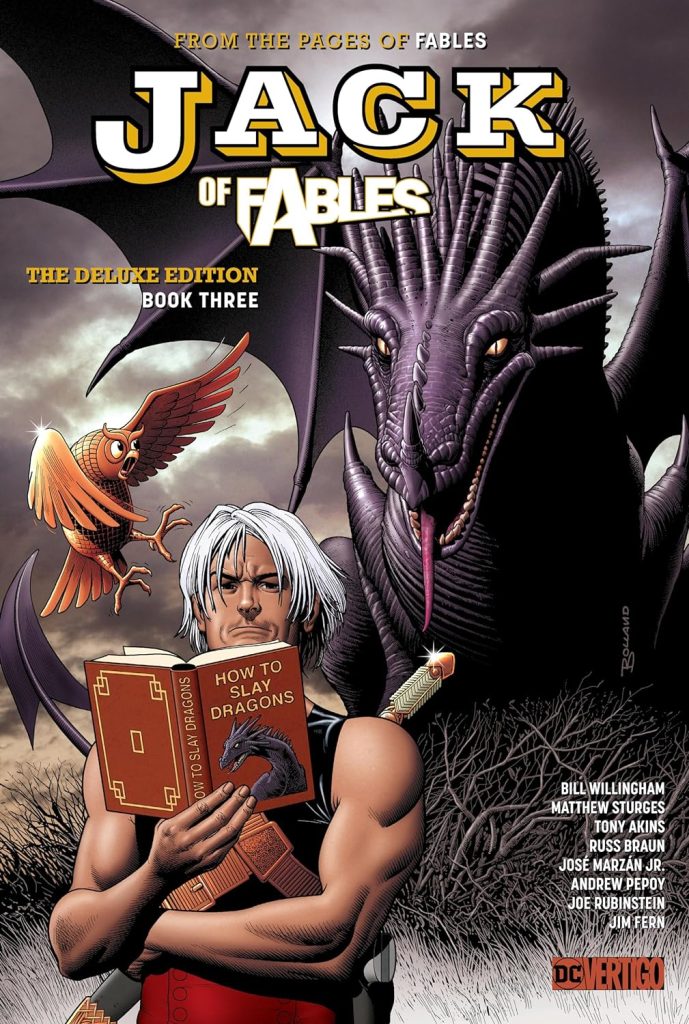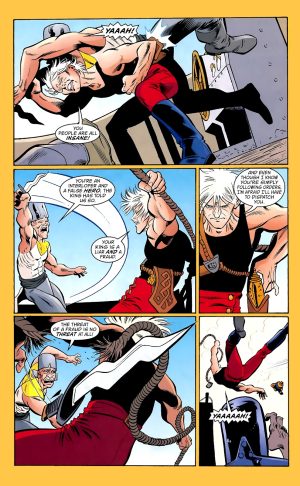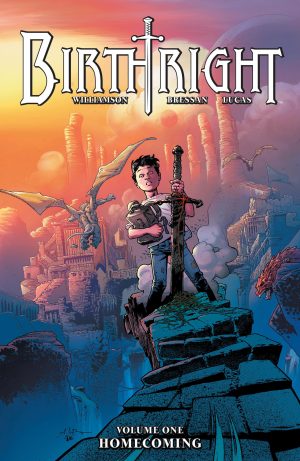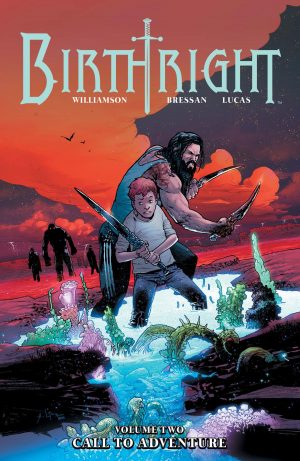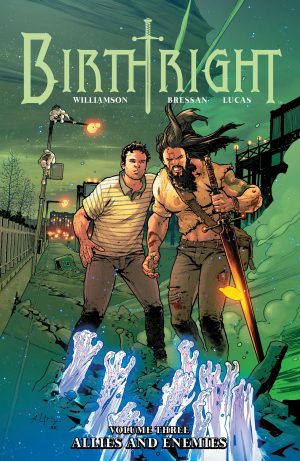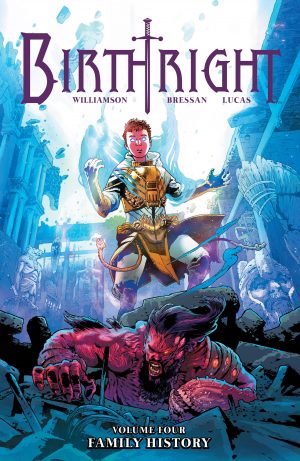Review by Frank Plowright
There’s never been a point at which Jack of Fables has oozed continuous quality, but with the material collected here rock bottom is reached. By the end it seems Bill Willingham and Matthew Sturges have lost all interest, and assume readers who’ve followed them that far will accept any old rubbish, so that’s what’s supplied. Alternatively, every creator has an off day, and much of Willingham’s final work on Jack of Fables is among the poorest he’s ever written. The advice would be that if you enjoy lighthearted adventure and fantasy/SF mash-up, then pick up slimmer paperback The Fulminate Blade, but forget about the remainder and consider Book Two as the series finish.
That SF/fantasy tale evicts the Jack who’s carried the series to date in favour of his son, Jack Frost, although no longer with the powers seen before. He’s decent and honest, so the polar opposite of his father, although these are characteristics leaving him too trusting, upon which the story turns. The first chapters feature the best art Tony Akins produced on Jack of Fables, expansive page designs, smooth action and a real spirit so often absent. It underlines he’s not an artist to be working to monthly deadlines, and later in the story his pages again become the less imaginative type more characteristic of the series. Jim Fern also contributes, matching Akins’ style well enough that it takes a trained eye to notice the difference. Some sections of the other material are told as single page gag strips, and prove Akins to be a talented cartoonist.
Paperbacks The New Adventures of Jack and Jack and The End form the remainder of the collection and considerable padding is the order of the day in what’s extremely episodic. An occasional sequence will resonate with the whimsical spark the best of Jack of Fables supplies, but it’ll be sunk among the mediocrity. Russ Braun’s art usually hits the spot, but he’s professional without inspiration.
For the finale Willingham and Sturges bring back every character of note who’s survived earlier stories to deal with Jack’s predicament. That’s one of the few imaginative aspects of a poor story, with Jack transformed into a dragon guarding his treasure. When it comes to ending the series the entire cast and their assorted disagreements converge on the one location, after which Willingham and Sturges take the most banal, obvious and thoughtless route and Akins’ art deteriorates by the page. There’s so little inspiration from Willingham and Sturges who can’t get things finished quick enough. They do resolve a plot thread about Jack having sold his soul several times to different devils, but that’s the only consideration for readers in what’s a phenomenal disappointment.
